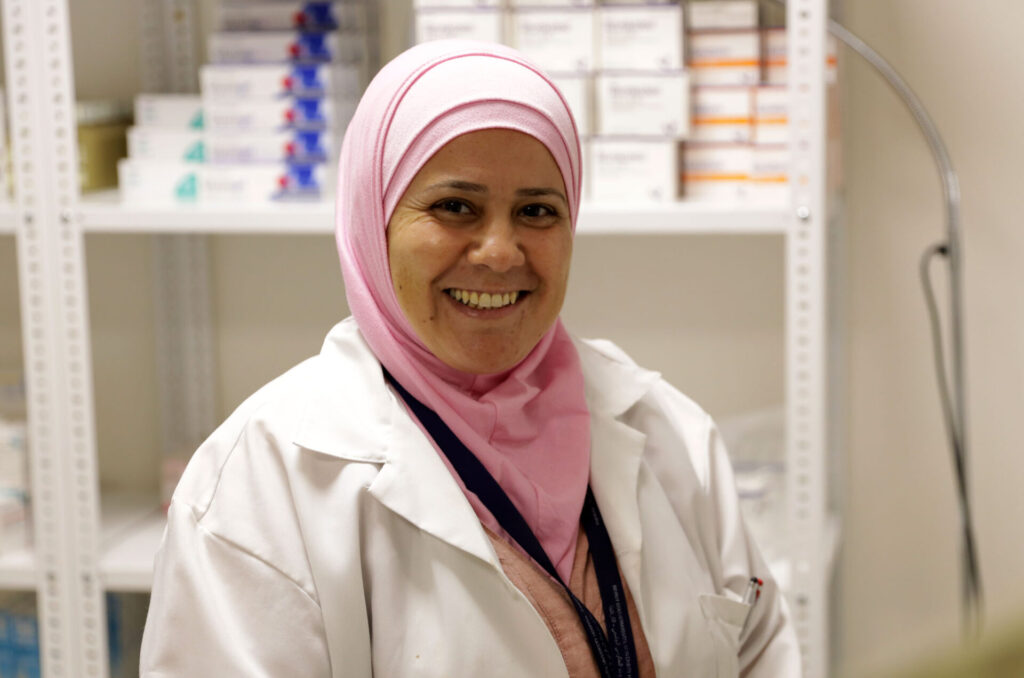Jan, 2012
It was a stormy January day, but “M” had to pick up her kids early from school in order to make it on time for her appointment in Sin El Fil.
The 45 year old mother of three is one of an estimated 3,600 persons living with HIV in Lebanon, according to the Ministry of Public Health.
Lebanon is considered one of the lower ranked countries when it comes to the prevalence of HIV/AIDS. But, that does not diminish the challenges facing people living with HIV.
“I felt like I was going through hell,” M declares, as she recounts her experience with HIV/AIDS, including all the difficulty and suffering she endured before being correctly diagnosed. “I suffered terribly for many months, all the while being unable to take care of myself and my children.”
When she finally knew she was HIV positive, her world “turned upside down.” Even more, she was unable to share the news with anyone around her “for fear of the stigma associated with HIV/AIDS”.
In fact, such stigma takes multiple severe forms in Lebanon, including social isolation, economic exclusion, and total abandonment. “Only through the medical, social and human support of SIDC have I been able to stand on my two feet and resume leading a ‘normal’ life,” she declares. “The support group and the peer educators played an important role in lifting my morale. Meeting others from Peope Living with HIV (PLHIV) helped me a lot. Also, SIDC stood by my family.”
Nadia Badran, who coordinates HIV program at SIDC, welcomes donated medicines to help treat HIV patients.
SIDC – Soins Infirmiers et Developpement Communautaire – is situated in a quiet neighborhood in Sin El Fil, East of Beirut. It was founded in 1987 with the mission of meeting “the health needs of the youth, elderly and the most vulnerable individuals and groups in Lebanon through community empowerment.” Nadia Badran, coordinator of the HIV/AIDS program at SIDC, explains that the organization struggles to “provide the much-needed support to persons living with HIV through various services, which include medication, psychological support, nutrition counseling, social guidance, home visits and peer education.”
One of the major challenges that face persons living with HIV in Lebanon is access to healthcare and social services. Often organizations like SIDC provide these services, but operate on a very limited budget.
That’s where Anera has been able to help. Through its partnership with YMCA-Lebanon, Anera recently delivered a much-needed donation of the antiretroviral medicine Didanosine.
The 3,160 packages of Didanosine valued over $180,000 were kindly donated by AmeriCares Foundation. This is the third year in a row that Anera has delivered life-saving antiretroviral medicines donated by AmeriCares to SIDC, which have included Abacavir, Lamivudine, Nevirapine, Zidovudine, and Saquinavir.
Nadia Badran adds. “PLHIV has witnessed periods of medicine shortages in the past so having enough stock of medicines ensures medical and emotional stability for the organization. But, it is our responsibility to make sure our beneficiaries know how to use their medicines and how to take care of themselves while using them.”
“We are happy to be able to contribute to alleviating the sufferings of people living with HIV/AIDS in Lebanon,” adds Dima Zayat, Anera’s medical in-kind program coordinator, “We believe that people living with HIV have the right to work, family and access to health care.”


